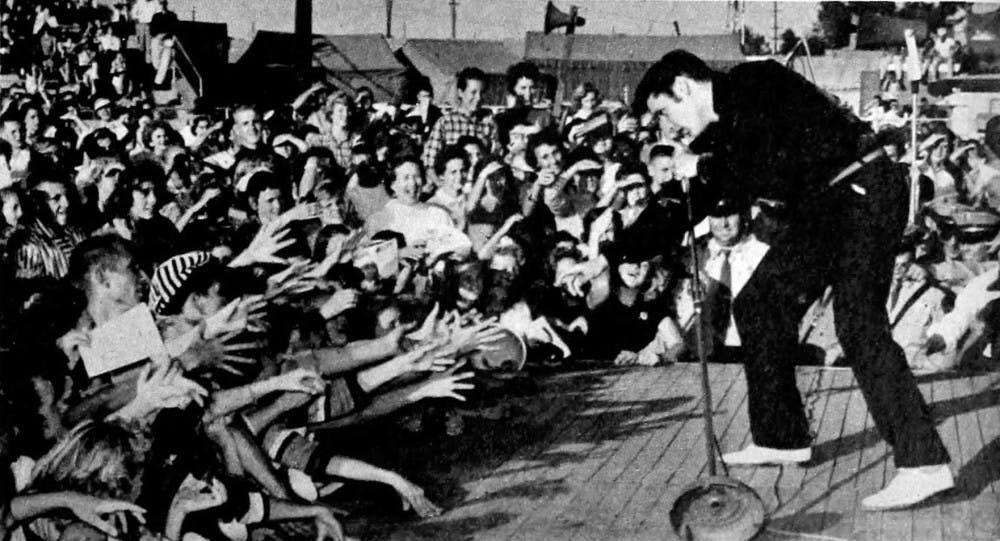It’s an age–old story: The headlining band leaves the stage and hangs up their instruments dramatically. The lighting changes and clapping and cheering begins. Sometimes there are chants, but the same thing happens every time. In a few moments, the band comes running back on stage with Cheshire–cat grins to play their biggest hits. You didn’t think they’d go without playing a couple more songs, did you? Well, maybe you should. The encore has thoroughly outstayed its welcome, and more artists are catching on.
The encore dates back to classical music and opera performances, whereby an enraptured audience would demand that a particular piano piece or aria be performed again so that they might enjoy it further. When popular music took off in the 20th century, the trend continued, with audiences demanding one or two more songs after a concert reached its natural conclusion. At present, the encore is an entrenched tradition, and any artist who dares end their concert without one is treated like a selfish prick who thinks they’re too good for the audience.
Encores in American music are so common that finding exceptions to the rule is easier, with the most popular being Elvis Presley. At the end of every Elvis performance, whether as an opening act or as a headliner, Presley's stage announcer would declare in no uncertain terms: "Ladies and gentlemen, Elvis has left the building." The show is over, now get out of the venue so everyone else can clean up and go home.
The encore becoming a concert staple now unduly harms artists that choose to buck tradition. The Pixies drew criticism back in 2014 for playing a show at Philly’s Electric Factory and ending without an encore. Lead singer Black Francis had no regrets about the choice, as he told Jonathan Valania of Magnet Magazine. "The crowd didn't earn it. I'm old–school that way. I'm Vaudeville," he said. "I find that when the audience is younger, they want you to hold their hand and smile and kick the beach ball around, and we don't do that. We don't do jazz hands."
Recently, some smaller rock and punk bands have made a conscious decision not to perform an encore, which they signal in advance to prevent crowds from demanding more. "We want you all to go home," singer Casey Crescenzo said in 2017 before The Dear Hunter performed "King of Swords (Reversed)." La Dispute singer Jordan Dreyer explained earlier this spring that they were "experimenting" with not doing encores, while PUP guitarist Steve Sladkowski put it bluntly last month: "Encores are fucking stupid." Grandson made no judgment toward the tradition, only repeating "This is our last song!" several times before concluding their Sept. 28 set with "blood // water."
Removing the encore holds particular value in a show with multiple headliners. After all, how can two bands truly "co–headline" if one band gets an encore and one doesn't? In the case of Flogging Molly and Social Distortion this fall, both bands performed 13 songs and left before an encore. For Manchester Orchestra and The Front Bottoms last winter, the bands alternated which act would be performing an encore and noted which one was last on the ticket. For Rancid and Dropkick Murphys on the 2017 Boston to Berkeley tour, the encore consisted of both bands performing punk standards such as "I Fought the Law" together.
That an encore has become a staple of the American music scene defeats the original purpose of rewarding the audience, and removes the mystique that originally surrounded the concept. How much must an audience clamor for more before their cries are heeded? At most shows, the applause is tepid at best, and sometimes nonexistent, as the special lighting and carefully–placed instruments have clued the crowds in that this is not the end.
Encores should not be abolished in full. An audience rabid with praise, shouting for more until their voice turns raw, should be rewarded for their dedication, and those encore tracks should be cult favorites and deep cuts, a gift for those hardcore fans that stuck around. That way, a fan seeing their favorite band for the first time may have a truly special concertgoing experience and be able to say they got an encore. For everyone else, hurry up, play your popular tracks, and then let everyone go home a few minutes early.

